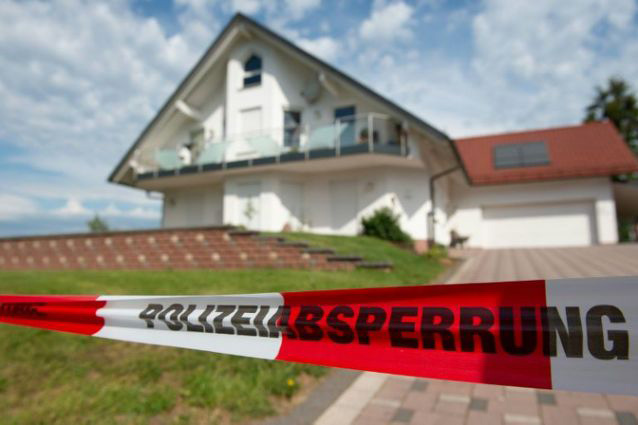BERLIN — German police have made two more arrests related to the assassination-style murder of a pro-migrant politician, allegedly by a far-right assailant, federal prosecutors said on Thursday.
The killing of Walter Luebcke, who was shot in the head at his home on June 2, has sent shockwaves through Germany and raised fresh questions about the country's response to the rising threat from neo-Nazis.
In the latest arrests, a suspect identified only as Elmar J., 64, was detained for selling in 2016 the weapon — a .38 calibre handgun — allegedly used by murder suspect Stephan Ernst, who has confessed to the crime.
The second man, Markus H., 43, is held on suspicion that he set up the contact between the gun-seller and Ernst.
The federal prosecutor's office said in a statement the two men both Germans were arrested on charges of "aiding and abetting murder" and would appear before an investigating magistrate at the federal court of justice later on Thursday.
"We assume that both of the accused knew about the far-right views" of the murder suspect, a spokesman for the prosecutor's office told reporters.
"And we assume that they also thought it was possible and accepted that [Ernst] would use the weapons for a politically motivated killing at a later time."
But the spokesman said there was no indication that they knew Ernst, 45, was planning to murder Luebcke, who was head of the Kassel city administration.
On Wednesday, Interior Minister Horst Seehofer said Ernst had confessed to the killing of Luebcke and said that he "acted alone".
Luebcke was an outspoken defender of Chancellor Angela Merkel's decision to welcome refugees and in 2015 drew the wrath of right-wing extremists by telling Germans who objected that they could leave the country.
Weapons arsenal
Prosecutors confirmed that Ernst had confessed to having "several" weapons, giving details to police on how they were obtained and where he hid them.
As a result, investigators reportedly found five weapons, including the one allegedly used in the murder, buried on his employer's premises, which are being tested by forensic experts.
Ernst is said to have told police he acquired part of the weapons arsenal, which reportedly includes an Uzi submachine gun and a pump-action shotgun, in 2014 and the murder weapon in 2016.
Investigators are probing the extent of Ernst's neo-Nazi ties and whether he had links to the far-right militant group National Socialist Underground (NSU).
The NSU killed nine Turkish and Greek-born immigrants and a German policewoman from 2000 to 2007, in addition to carrying out bomb attacks and bank robberies.
Police are also investigating whether the newly arrested men have any connections to the right-wing extremist scene.
News magazine Der Spiegel reported that in 2006, Markus H. was questioned as part of the inquiry into the murder of cafe owner Halit Yozgat — one of the nine immigrants killed by the NSU.
Spiegel also said that in 2009, Markus H. and Ernst were reportedly part of a group of nationalists who stormed a trade union rally in the city of Dortmund. Both men were arrested.
Elmar J. had no criminal record, according to Spiegel.
‘High-risk situation’
Merkel's CDU Party has laid partial blame for Luebcke's killing on the far-right AfD Party, saying it contributed to inciting extremist hatred.
Railing against migrants, the AfD scooped nearly 13 per cent of the vote in 2017 general elections, becoming the biggest opposition party in parliament.
On Thursday, AfD politician Wolfgang Gedeon played down the threat from the far-right.
"In comparison to Islamist terror and left-wing extremist terror, far-right terror is politically speaking, bird poo," he told the regional parliament in Stuttgart.
Gedeon's choice of words was reminiscent of that deployed by AfD co-leader Alexander Gauland, who caused outrage in 2018 by describing the Nazi period as a mere "speck of bird poo in over 1,000 years of successful German history".
On Thursday, Seehofer said the number of known right-wing extremists in Germany had risen by 100 individuals last year to 24,100, compared to the 2017 figures, with 12,700 of them known to be violent.
"That is why I stress that we have a high-risk situation in this area," he said.
